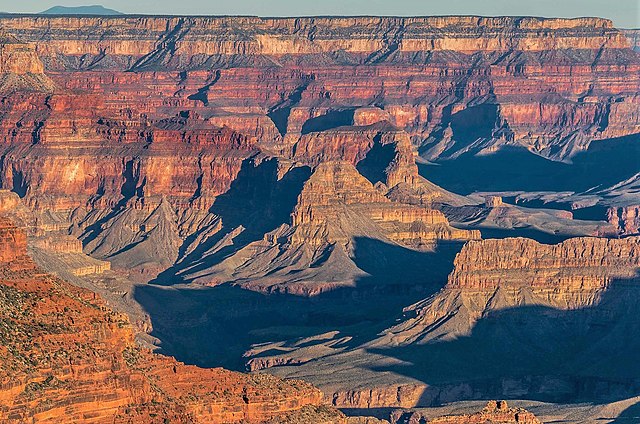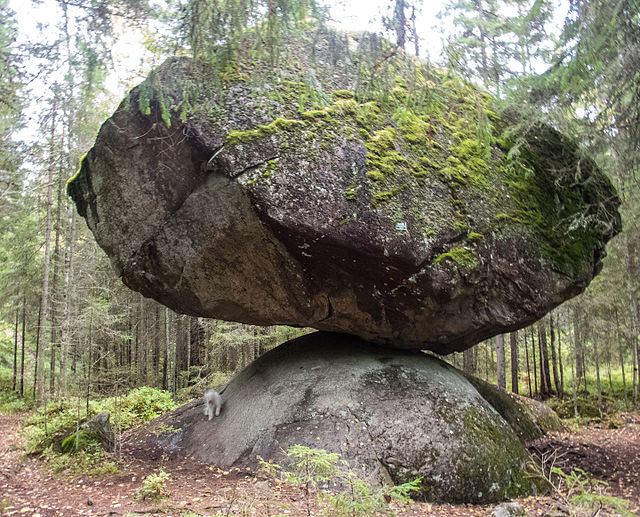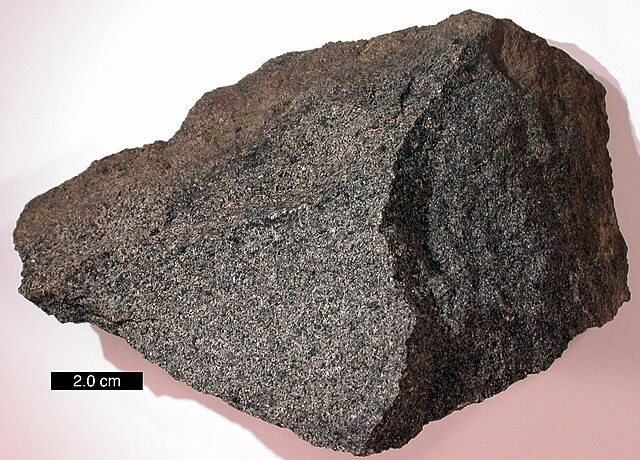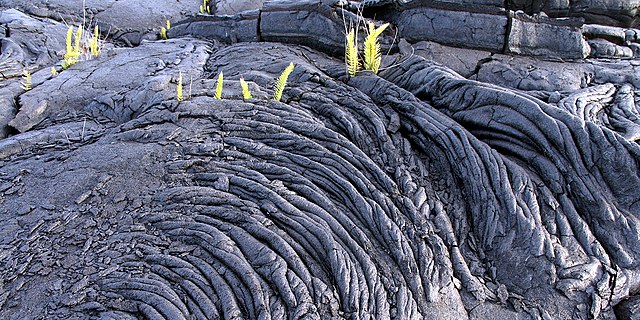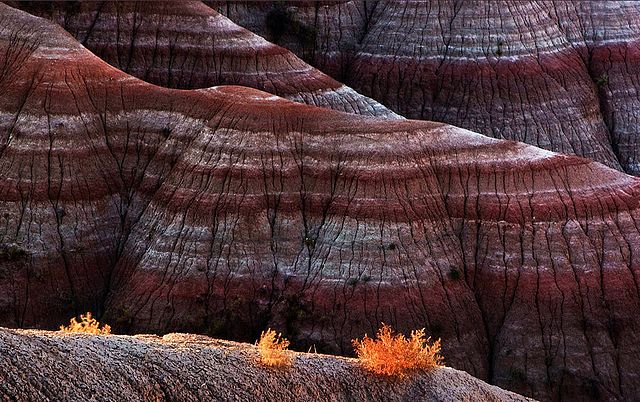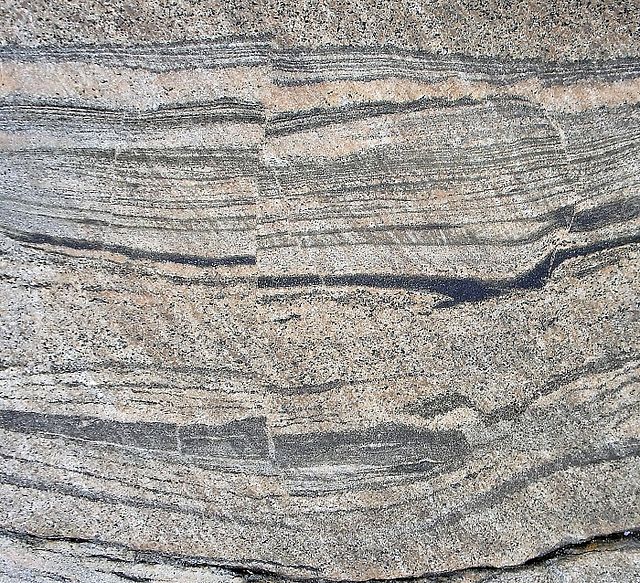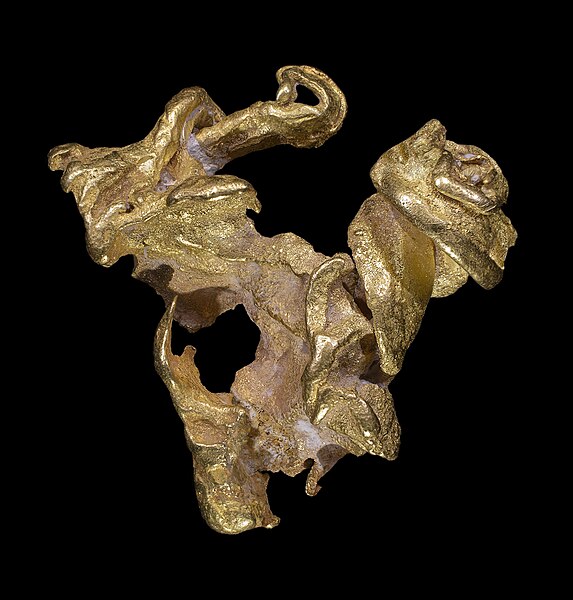In geology, rock is any naturally occurring solid mass or aggregate of minerals or mineraloid matter. It is categorized by the minerals included, its chemical composition, and the way in which it is formed. Rocks form the Earth's outer solid layer, the crust, and most of its interior, except for the liquid outer core and pockets of magma in the asthenosphere. The study of rocks involves multiple subdisciplines of geology, including petrology and mineralogy. It may be limited to rocks found on Earth, or it may include planetary geology that studies the rocks of other celestial objects.
The Grand Canyon, an incision through layers of sedimentary rocks.
A balancing rock called Kummakivi (literally "strange stone")
Rock outcrop along a mountain creek near Orosí, Costa Rica.
Sample of igneous gabbro
Geology is a branch of natural science concerned with the Earth and other astronomical objects, the rocks of which they are composed, and the processes by which they change over time. Modern geology significantly overlaps all other Earth sciences, including hydrology. It is integrated with Earth system science and planetary science.
Solidified lava flow in Hawaii
Sedimentary layers in Badlands National Park, South Dakota
Metamorphic rock, Nunavut, Canada
Native gold from Venezuela

